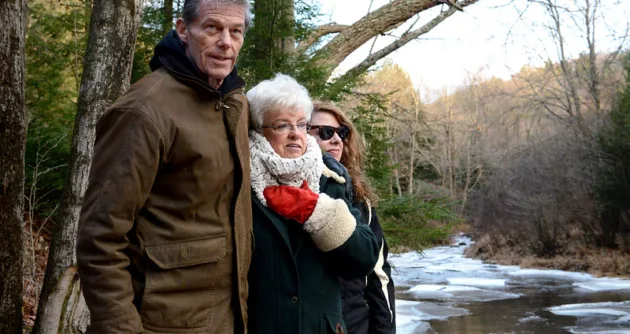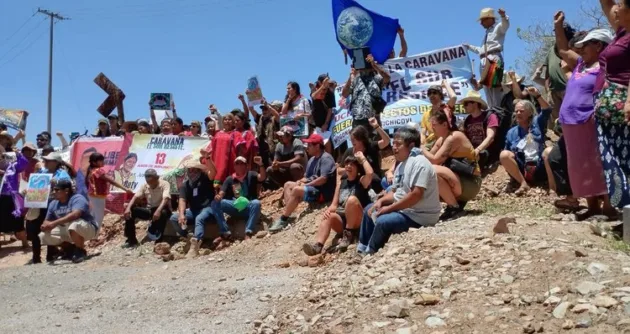The recent vote for a new constitution in Chile – one that would have rooted the nation’s governing document in rights over profit – marks a beginning, not an end. Despite the claims of the corporate-minded, rejection of the new constitution by the voters of Chile is not a refutation of what the new constitution contained, but one that shows the desperation of the powerful elite to hold on to their planet- destroying levels of greed and the lengths they will go to deny the inevitable.
The people of Chile should be applauded for how far they have come and what they demonstrated to others in terms of how government should be arranged in the name of people, communities, and the natural world. The next step is to both support Chile in reintroducing their constitutional rewrite and for people in nations elsewhere to replicate what Chile has shown us.
CELDF has seen this kind of wealth and power used to dissuade people of what they know they deserve time and time again. Fear, resources, and access combined create a power force that can sow doubt in the minds of even the most resolute. We’ve seen it in places like Youngstown, Ohio, and Spokane, Washington: the corporatists flexing their connections and access to dominate the political arena. In Spokane, a vote on a mini-version of the new Chilean constitution went down at the ballot with a similar percentage of defeat. Two years later that measure went in front of the people and missed being approved by a few hundred votes. The third attempt would’ve proven successful hadn’t the corporatists used the courts to block the vote from happening at all.
If there’s any rewriting of a new constitution in Chile it should be to add more rights-oriented and corporate control provisions, not less. The rewrite could include language like the right of communities to self-govern, the right to healthy, sustainable food production and access, and the right to a basic universal income, along with making it clear that corporations cannot hold the same rights as people or nature. As we said in advance of the September 4th vote to support the people of Chile, “We must come to understand that changing laws is not enough. We must change our thinking and our relationship to the natural world. What’s required is a cultural shift as well as a legal shift that spawns alternative ways of living and governance.”

September marks the legal rights of nature anniversaries in Tamaqua Borough, Pennsylvania, and Ecuador. As we announced last week we will be celebrating those momentous rights of nature events and others as well as we look down the road to what it will take for the fuller transformation to occur.
The naysayers celebrating the rejection of a new constitution in Chile are saying it was too much change, too progressive, too utopian. The supporters say it’s back to the drawing board and what happened is normal in the two steps forward, one step back scenario of how big changes come about. To the naysayers there is nothing to be said. To the supporters – keep in mind what it took to get to this point, why it came to be, and that what was produced in the way of a new constitution came from the people of Chile, not foreign corporatists looking to exploit Chile’s natural resources. Stay true and stay the course for what you know is right.
The transformation away from an extractive, nature-destroying, corporate-profiteering existence to one that is rights-focused and earth-centered is inevitable. The old way is going extinct. The new way that is emerging is based on traditional and customary values of first peoples.
Inevitability is what scares the corporate elite and why they managed to produce enough fear on false grounds to effect the vote in Chile. But at the same time inevitability is the driving force for those in Chile who know that a new constitution, one just like the one voted on or something similar, will happen. It is inevitable.
CELDF is here to support the journey in Chile along with all the other efforts happening in the name of community rights and legal rights of nature.



